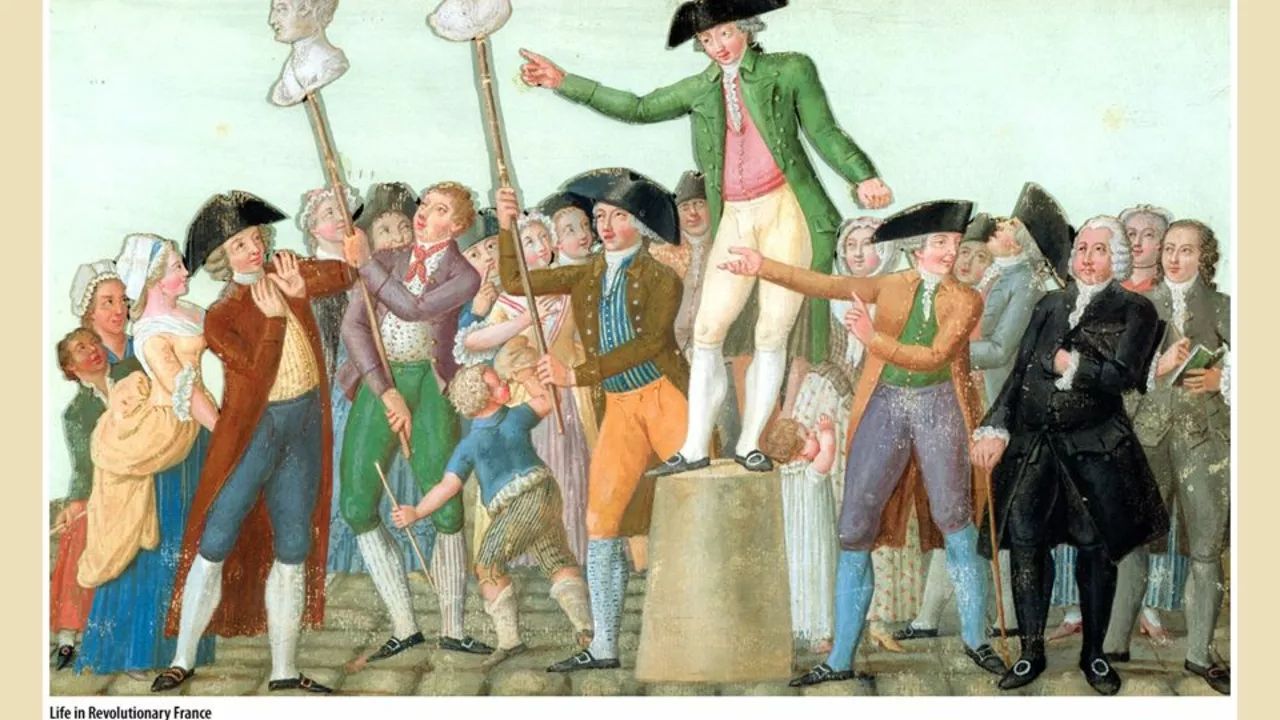Was the French revolution a force for good?

Jul, 17 2023
Understanding the French Revolution
Before we delve into whether the French Revolution was a force for good, it is crucial to understand what transpired during this critical period in history. The French Revolution, which lasted from 1789 until 1799, was a period of radical social and political upheaval in France that had a lasting impact on French history and more broadly on the world.
During this period, the French citizens razed and redesigned their country's political landscape, uprooting centuries-old institutions such as absolute monarchy and the feudal system. The revolution gave birth to the ideals of liberty, equality, and fraternity, which continue to inspire movements for change worldwide.
The Positive Impact of the French Revolution
The French Revolution had several positive outcomes. It led to the end of the Bourbon monarchy and the rise of radical political groups. The French people, for the first time, tasted the power of popular sovereignty, which is the belief that the authority of a state and its government is created and sustained by the consent of its people.
The revolution also led to the adoption of the Declaration of the Rights of Man and Citizen, which outlined the natural, unalienable, and sacred rights of man. This document is still a cornerstone of human rights today.
The Spread of Liberalism
One of the significant effects of the French Revolution was the spread of nationalism and liberalism across Europe. The revolution's ideals of freedom and equality inspired oppressed peoples to challenge old systems of rule. It also led to the spread of secularism and the diminishing power of the Church and religion in public life.
Moreover, the revolution inspired several other movements worldwide, including the Latin American revolutions and the struggle for abolition in the United States.
The Reign of Terror
Despite its many positive outcomes, the French Revolution also had a dark side. The Reign of Terror, which took place from 1793 to 1794, was a period of violence and mass executions. It was during this time that the infamous guillotine was used to execute thousands, including King Louis XVI and Queen Marie Antoinette.
The Reign of Terror is often cited by critics as evidence of the revolution's destructive force. It represents the dangers of radicalism and the possible descent into violence and chaos that can occur in such turbulent times.
The Impact on the Economy
The French Revolution also had a profound impact on the French economy. It led to the abolition of feudalism and the redistribution of land, which benefited the peasant class. However, it also led to economic instability, inflation, and food shortages.
The revolution's economic policies, such as the issuing of assignats (paper currency) and the Law of Maximum (price controls), were initially intended to ease economic difficulties but ended up exacerbating them. The economy only began to stabilize after Napoleon Bonaparte took control in 1799.
The Rise of Napoleon Bonaparte
The French Revolution paved the way for the rise of Napoleon Bonaparte, one of history's most renowned military leaders. Napoleon initially brought stability and order to France after the chaotic revolution. However, his ambitions led France into a series of wars known as the Napoleonic Wars.
While Napoleon is credited with many reforms that modernized France, his rule also marked a return to autocracy. He crowned himself emperor and curtailed many of the freedoms gained during the revolution.
The Legacy of the French Revolution
The French Revolution's legacy is complex and multifaceted. On the one hand, it led to the end of the monarchy, the rise of democracy, and the spread of nationalism and liberalism. On the other hand, it led to a period of violence, economic instability, and the rise of an autocratic regime under Napoleon.
Regardless of its mixed outcomes, the revolution's ideals of liberty, equality, and fraternity continue to influence societies worldwide and inspire movements for change.
Was the French Revolution a Force for Good?
So, was the French Revolution a force for good? The answer to this question largely depends on one's perspective. If you value ideals such as liberty, equality, and popular sovereignty, then the French Revolution can be seen as a positive force. However, if you consider the violence, economic instability, and the eventual rise of an autocratic regime, then the revolution might not seem so positive.
Ultimately, the French Revolution was a transformative event that changed the course of history. Its impact, both good and bad, is still felt today, making it one of the most significant events in human history.